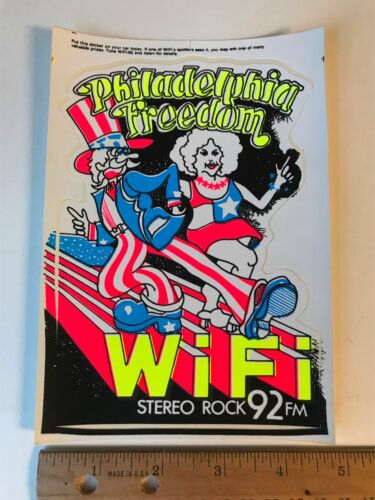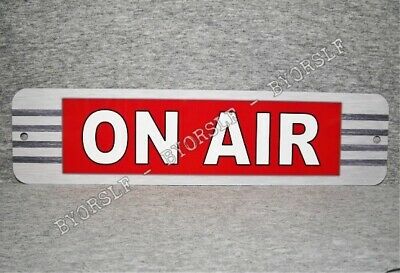-40%
vtg WiFi Stereo Rock 92FM Philadelphia Freedom Radio Station decal sticker NOS
$ 11.61
- Description
- Size Guide
Description
Philadelphia FreedomWiFi / WI FI
Stereo Rock 92 FM
Decal Sticker
Vintage, Unused, very good collectible condition....no date, appears to be from the 1970s with the popular vintage " Keep on Truckin character walker " ..... Measures approx 6 1/2" x 4"
View my other collectible decal stickers and patches in my Ebay store!
----------------------------------------------------------------------------------------
Taken from internet:
In 1970, Gollub sold WIFI to General Cinema and studios were moved to 555 City Ave. For a few years, various automated formats were utilized, including one called "Hit Parade '70." Eventually, an AM-style Top 40 format emerged with high-energy live jocks. Although the station's signal was only fair, and it took Philadelphia longer than most markets to accept FM radio, the station had some success with the format. At one point in the late 1970s, with WIBG and WFIL no longer playing Top 40, WIFI was the only true Top 40 station in Philadelphia. A popular morning show, "Byron and Tanaka" was one of the early FM "personality" teams.
When WCAU FM debuted their "Hot Hits" format in 1981, they grabbed most of the teen audience from WIFI. In response, WIFI briefly attempted an adult contemporary format in 1982 but it failed almost immediately due to stiff competition and a diluted audience as a result of three other AC stations (WMGK, WSNI, WWSH). In early 1983, the station called in consultant Rick Carroll who had transformed Los Angeles' KROQ into a Southern California ratings success. With much fanfare and press coverage, Carroll attempted to replicate his "Rock of the 80's" New Wave format in Philadelphia by dramatically changing the station's sound and bringing in DJs such as Mel Toxic and Lee Paris. The station was referred to as "i92."
After less than six months, "Rock of the 80s" was dumped on August 1, 1983. New owner Beasley Broadcast Group changed the call letters to WXTU and the format to Urban Contemporary. By March, 1984, the format was changed to country and the station finally found a successful format that continues to this day.










